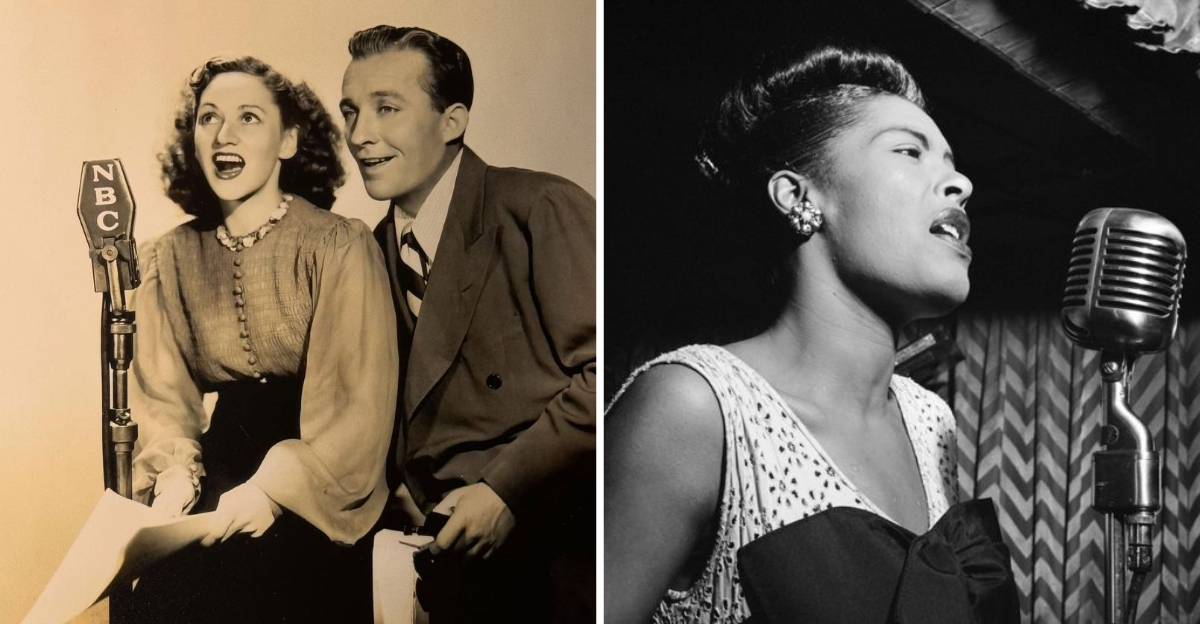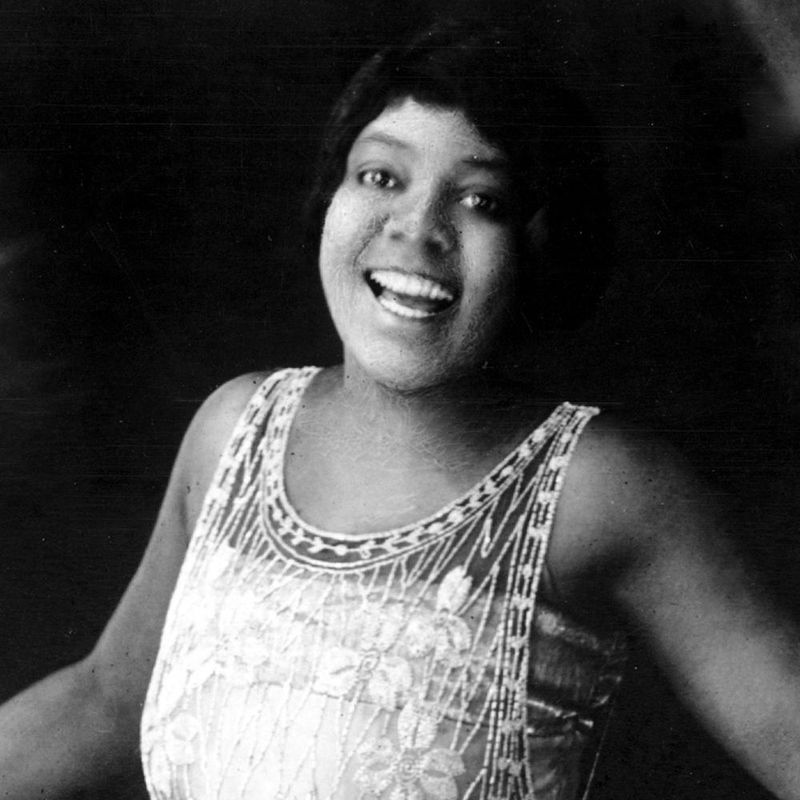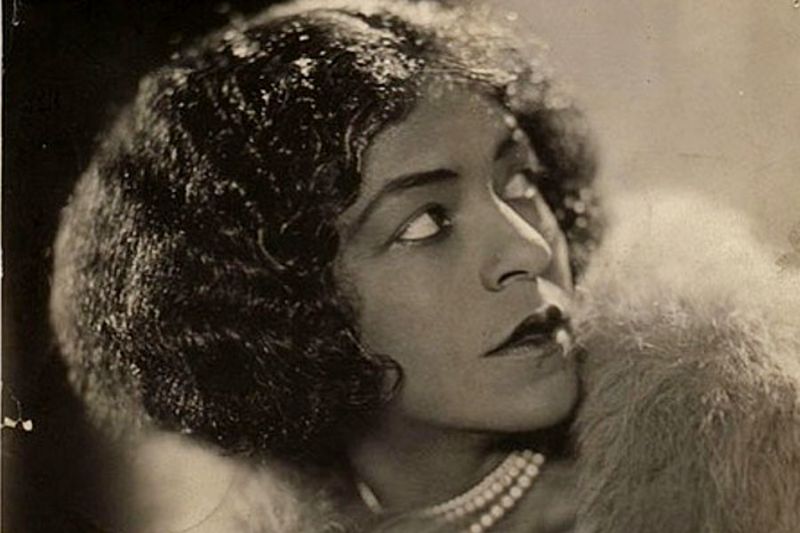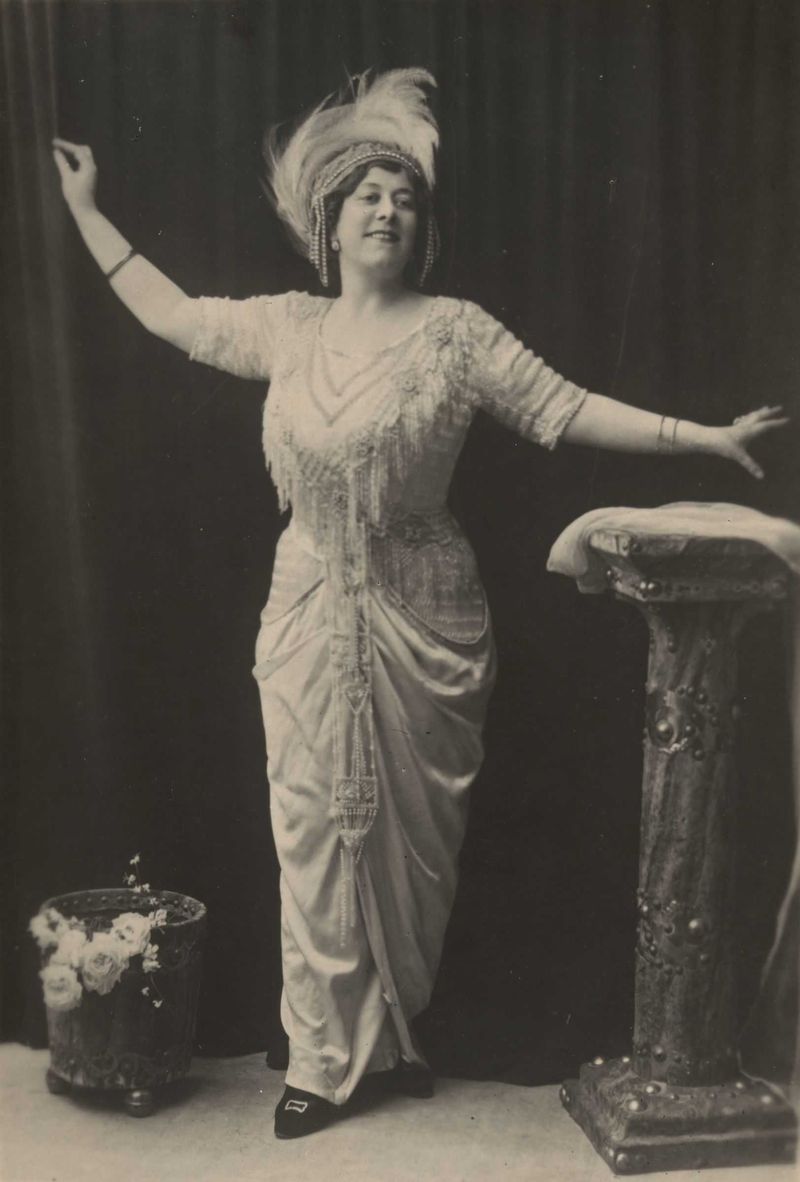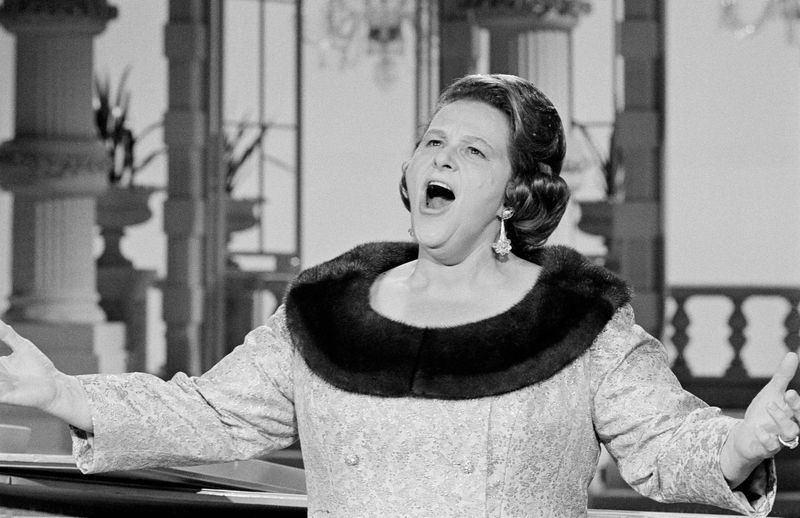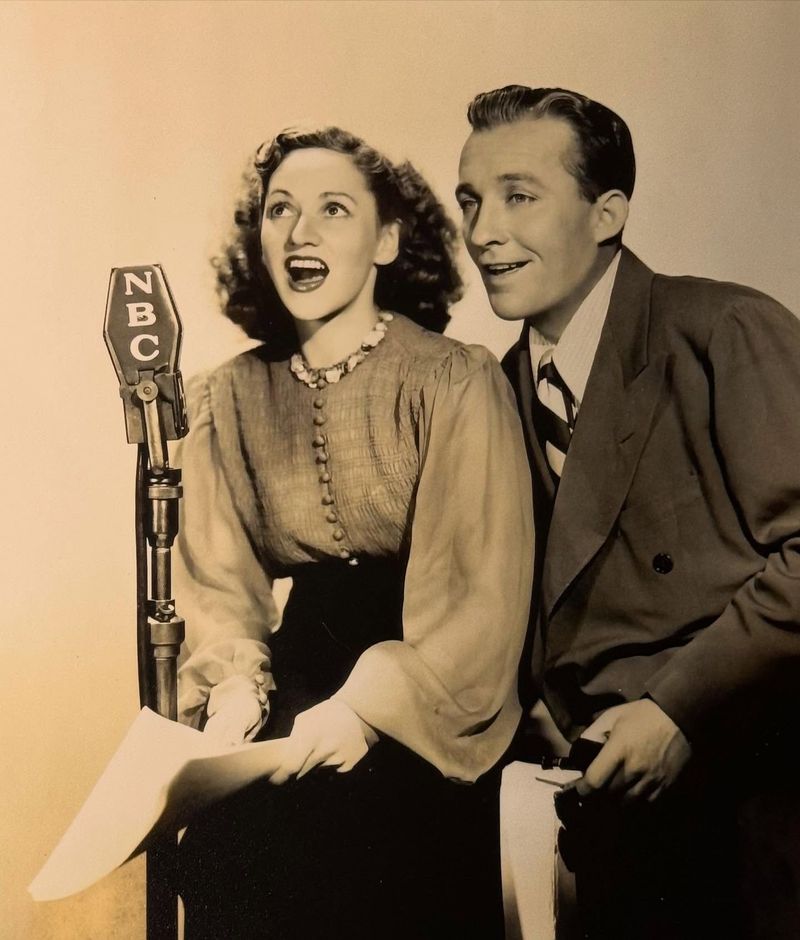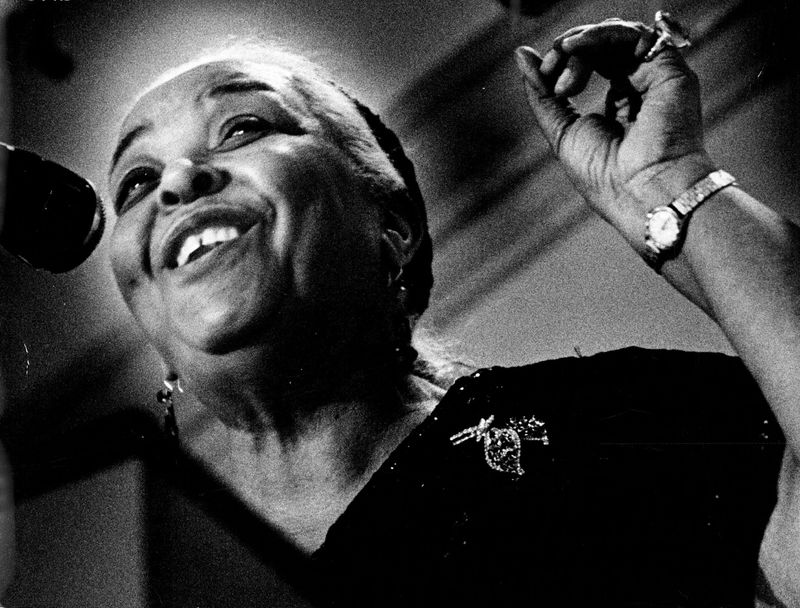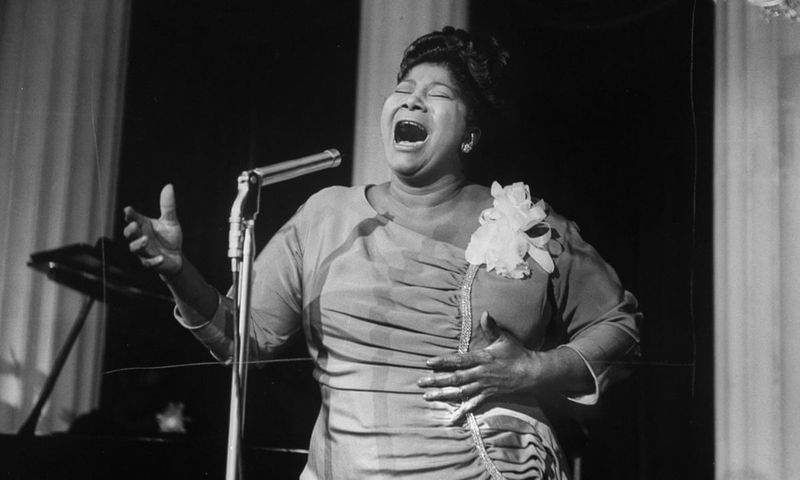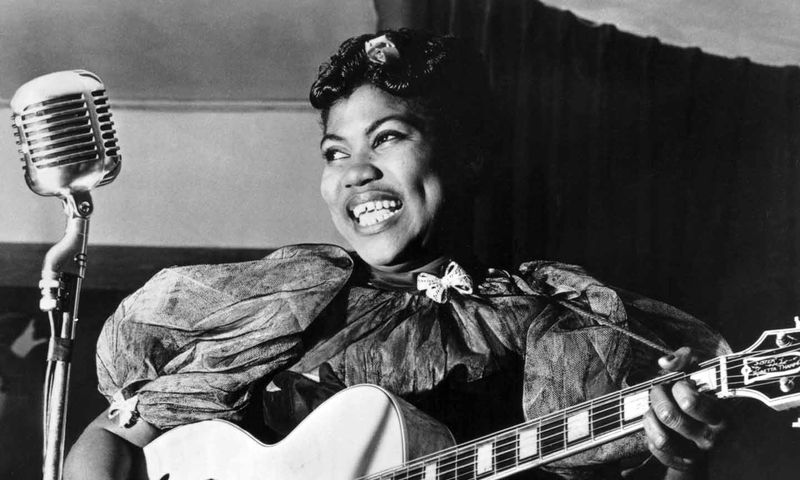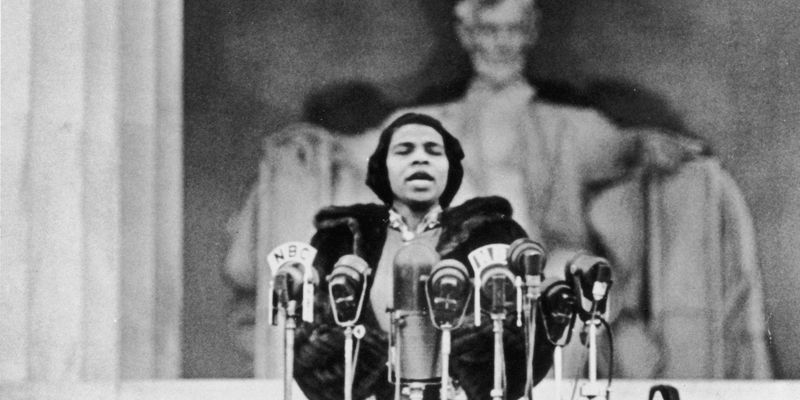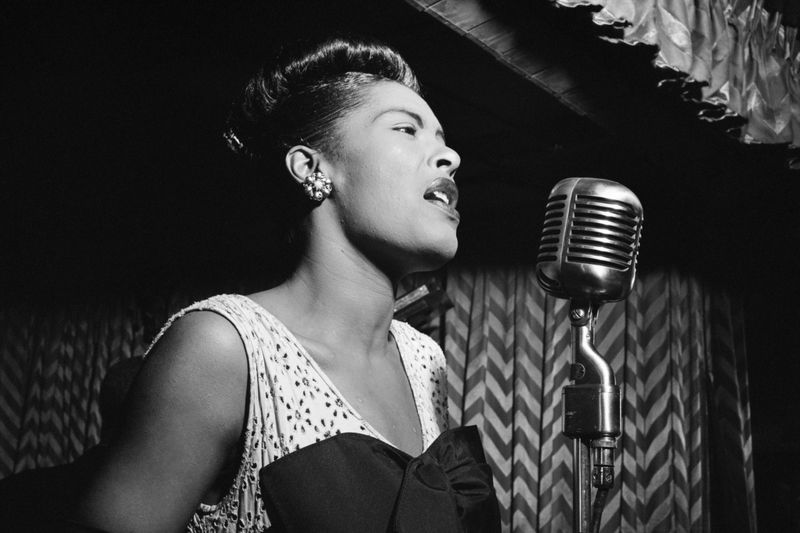The early 20th century witnessed the rise of extraordinary female vocalists who broke barriers and shaped the music industry. Here are ten trailblazing women born before 1940 whose voices and careers left an indelible mark on music history:
1. Bessie Smith (1894–1937)
Known as the “Empress of the Blues,” Bessie Smith’s powerful contralto voice brought blues to the forefront in the 1920s. Emerging from Chattanooga, Tennessee, her 1923 hit “Downhearted Blues” sold over two million copies, solidifying her status. Collaborating with jazz legends like Louis Armstrong, Smith’s emotive performances influenced future icons such as Billie Holiday. Her ability to convey deep emotions through song made her one of the most celebrated artists of her time, leaving a lasting impact on the blues genre.
2. Lillyn Brown (1885–1969)
Lillyn Brown, an Atlanta native, claimed to be the first professional to sing blues in public in 1908. Known as “The Kate Smith of Harlem,” she was a vaudeville star from 1894 to 1934. Her dedication to the craft extended beyond performing; she taught aspiring vocalists, ensuring the blues would resonate for generations. Brown’s pioneering efforts laid the groundwork for future blues artists, and her influence is still felt today in the thriving genre she helped shape.
3. Florrie Forde (1875–1940)
Australia-born Florrie Forde became a British music hall sensation after relocating in 1897. Her sing-along performances, filled with catchy tunes like “It’s a Long Way to Tipperary,” captured audiences’ hearts. Her charismatic stage presence and ability to engage the public made her a beloved figure during World War I. Forde’s performances offered an escape during trying times and solidified her role as a music hall legend, leaving an enduring legacy in British entertainment history.
4. Kate Smith (1907–1986)
Kate Smith, “The First Lady of Radio,” captivated audiences with her powerful contralto voice. Her rendition of “God Bless America” in 1938 became a patriotic anthem. Smith’s radio and television presence comforted a nation during turbulent times, earning her the Presidential Medal of Freedom in 1982. Her contributions to American culture went beyond music; she embodied resilience and hope, becoming an icon whose influence transcended generations. Smith’s legacy continues to inspire and uplift audiences.
5. Connee Boswell (1907–1976)
Connee Boswell, a Kansas City native, was part of the Boswell Sisters trio, known for their intricate harmonies in the 1930s. After polio, she pursued a solo career, collaborating with stars like Bing Crosby. Her innovative vocal techniques influenced jazz greats, including Ella Fitzgerald. Boswell’s determination and artistry shone through every performance, making her a trailblazer in the jazz world. Her unique style and contribution to vocal jazz remain influential.
6. Ethel Waters (1896–1977)
Ethel Waters, known for her full-bodied voice and wide range, was a trailblazer in the blues and jazz scenes. Her career spanned singing, acting, and breaking racial barriers as the first African American woman to star in her own TV show. Waters’ dynamic performances captivated audiences and earned her a Primetime Emmy nomination. Her trailblazing achievements laid the foundation for future artists in both music and television.
7. Mahalia Jackson (1911–1972)
Mahalia Jackson’s powerful contralto voice earned her the title “Queen of Gospel Song.” Her 1930s debut led to the 1945 hit “Move on Up a Little Higher.” Jackson’s emotive delivery influenced countless gospel artists and shaped the genre’s future. Her performances resonated with audiences worldwide, and her legacy continues to inspire and uplift. Jackson’s voice and spirit made gospel music a vital part of American culture, breaking barriers and touching hearts globally.
8. Sister Rosetta Tharpe (1915–1973)
Sister Rosetta Tharpe, known as the “Godmother of Rock and Roll,” blended gospel lyrics with electric guitar. Her unique sound and stage presence influenced rock pioneers like Elvis Presley. Tharpe’s groundbreaking style in the 1930s and 40s paved the way for future musicians. Her legacy as a musical innovator is celebrated, and her influence on rock and roll is undeniable. Tharpe’s music broke boundaries and continues to resonate with audiences today.
9. Marian Anderson (1897–1993)
Marian Anderson’s contralto voice broke racial barriers and captivated audiences worldwide. Denied a 1939 performance at Constitution Hall, she sang at the Lincoln Memorial to a huge crowd, marking a pivotal civil rights moment. Anderson was the first Black American to sign with RCA Victor and performed with the New York Philharmonic. Her courage and talent paved the way for future artists, making her a symbol of perseverance and excellence.
10. Billie Holiday (1915–1959)
Billie Holiday, “Lady Day,” rose from a challenging Baltimore childhood to become a jazz icon. Her emotive voice and unique phrasing redefined jazz vocals. Collaborating with legends like Benny Goodman and Count Basie, she left an indelible mark on the music world. Songs like “Strange Fruit” highlighted racial injustices, showcasing her bravery and artistry. Holiday’s legacy endures, inspiring generations of musicians with her soulful performances and poignant storytelling.
